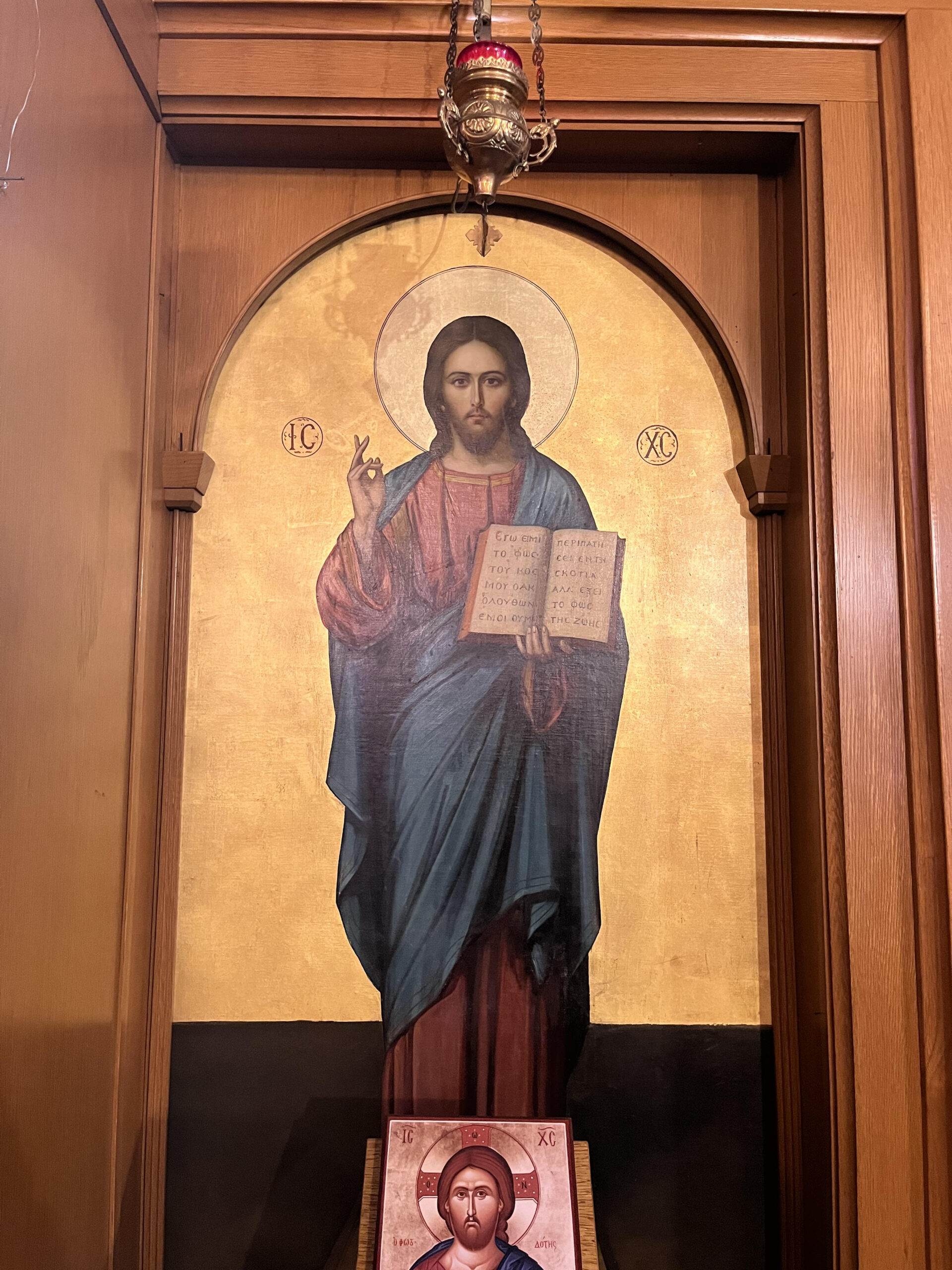For when God made a promise to Abraham, since he had no one greater by whom to swear, he swore by himself, saying, “Surely I will bless you and multiply you.” And thus Abraham, having patiently endured, obtained the promise. Men indeed swear by a greater than themselves, and in all their disputes an oath is final for confirmation. So when God desired to show more convincingly to the heirs of the promise the unchangeable character of his purpose, he interposed with an oath, so that through two unchangeable things, in which it is impossible that God should prove false, we who have fled for refuge might have strong encouragement to seize the hope set before us. We have this as a sure and steadfast anchor of the soul, a hope that enters into the inner shrine behind the curtain, where Jesus has gone as a forerunner on our behalf, having become a high priest for ever after the order of Melchizedek. Hebrews 6:13-20 (Epistle from the Fourth Sunday of Great Lent)
The last verse in the Epistle of both the fourth Sunday, as well as the third Sunday of Lent mention the mysterious figure of Melchizedek. In Genesis 14: 18-20, we read,
And Melchizedek, king of Salem, brought out bread and wine; he was priest of God Most High, and he blessed him and said, “Blessed be Abram by God Most High, maker of heaven and earth; and blessed be God Most High, who has delivered your enemies into your hand!” And Abraham gave him a tenth of everything.
In his Epistle to the Hebrews, Saint Paul writes about Melchizedek, mostly in chapter 7, in the passage that immediately follows today’s reading. In the reflection on last Sunday’s Epistle reading, we discussed the image of Jesus as “High Priest.” In today’s reflection we will discuss the priesthood of Levi contrasted to the priesthood of Melchizedek. Now, undoubtedly you are asking yourself not only who the heck was Melchizedek but who was Levi as well.
In the Old Testament book of Exodus, we are introduced to Aaron, the brother of Moses, who was from the tribe of Levi (For those unfamiliar with the tribes of Israel, we know of Abraham—with whom God made the first covenant—his son Isaac, and Isaac’s son Jacob. Jacob has twelve sons, each of whom was given a section of and in the land of Canaan. The offspring of these twelve sons are called the “Twelve Tribes of Israel.” One of these sons, and the name of one of these tribes is Levi. Aaron was from the tribe of Levi). Aaron was called by God to be a priest, and his sons, also from the tribe of Levi, were also called to be priests. Thus, the priests of Israel were from the Tribe of Levi. The third book of the Old Testament, called Leviticus, was really the handbook of the priests. The priests enforced the Law of God, and so this book reads almost like a law book.
So, the priesthood of Levi had a set beginning. God founded it in the book of Exodus. The Levitical priests had a genealogy, traced back to Levi, then back to Jacob, Isaac and Abraham. The Levitical priests needed to be “ordained.” Yet the power of these priests was incomplete—the rituals that they performed had to be done over and over again. The priests served temporarily—eventually they would all die. And these priests were not perfect, since they were human and thus sinners. The priesthood of Levi was far from perfect.
Melchizedek makes a quick appearance in Genesis. He is a king. He is also a priest. He brought out bread and wine, prefiguring the Eucharist. Melchizedek blessed Abraham (the Patriarch of Judaism) and Abraham gave Melchizedek a tenth of everything he had. Abraham recognized Melchizedek as one greater than he.
The name “Melchizedek” means “king of righteousness” (Hebrews 7:2) and the king of Salem means “king of peace.” (7:2) Both of these titles prefigure the identity, titles and work of Christ. Melchizedek is presented without genealogy—He is descended from no one. He is without earthly origin.
So, when St. Paul refers to the priesthood of Melchizedek, he is referring to Christ as being the “High Priest” according to THIS order of the priesthood. Unlike the Levitical order of priests which is temporary and imperfect, Christ has no beginning, no end and no sin. His “High Priesthood” exceeds the Levitical priesthood. Just as the New Covenant—the Body and Blood of Christ—exceeds the Old Covenant, the Law.
Today, we follow the New Covenant, as well as the new priesthood of Christ. He is the High Priest, or the Archpriest, whose origin is from before the dawn of time, and whose priesthood will remain forever. We are all “members” of His “congregation.” Our leader is not the priest or the bishop but Christ Himself. The bishops and priests represent Christ but they are not Christ. The High Priest is Christ. His covenant with us is eternal.
With the rivers of your tears you made the barren desert bloom; and with your sighs from deep within, you made your labors bear their fruits a hundredfold; and you became a star, illuminating the world by your miracles, O John, our devout father. Intercede with Christ our God, for the salvation of our souls. (Apolytikion, Fourth Sunday of Lent, Sunday of St. John Climacus, Trans. by Fr. Seraphim Dedes)
Melchizedek prefigured Christ. As Christians then, we are not descendants of Abraham, but rather we are heirs of the priesthood of Melchizedek.
